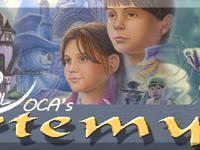The world was shifting beneath my feet—though at the time, I couldn’t quite put my finger on it. Spencer’s Butte, towering over Eugene, Oregon, had always been a place of perspective. A place where you could stand above it all, see civilization laid out like a celestial game board, and pretend you weren’t just another fragile piece in the grand cosmic play.
That night, though, I wasn’t just standing above it—I was teetering on its edge, trying to hold onto something that was already slipping through my fingers.
Dave, must have seen it in my eyes—that glint of apprehension, the way the stars looked a little too sharp, a little too knowing. “Here,” he said, pressing his Walkman into my hands, like an offering.
Aerosmith’s "Sweet Emotion" hummed through the headphones, a song I’d heard a hundred times before, but in that moment, it was medicine. It tethered me, gave my mind a place to land before it could spiral into the unknown.
Of course, the real test came on the way down. That’s when the trees turned into tricksters, their branches whispering half-truths, their shadows weaving themselves into something sentient.
At one point, I caught sight of a coin flipping through the air—except it wasn’t a coin, not really. At first, it was just an ordinary flicker, catching stray flashlight beams as it tumbled. But as it ricocheted off the branches like a pinball, something shifted.
It multiplied, expanding, assembling itself into a presence—grinning like the Cheshire Cat but scaled like some forgotten reptile. Its eyes were perched on stalks, swirling black vortexes within them, each one holding the infinite roll of fate.
And in that instant, I understood something unspoken: the universe was less a solid structure and more a playful, ever-shifting puzzle.
We pressed forward down the trail, flashlights carving tunnels through the black. The trees leaned in, their skeletal branches flickering in and out of existence in the half-light. Shadows moved with intent, shifting in ways that shadows shouldn’t.
Eventually, we reached the city, and I let myself breathe. My companions wandered the UofO campus, their conversation like anchors keeping me from floating off into the unknown.
The night stretched toward morning, and in the half-light, the bushes lining the sidewalk became ankle-biters—lashing out, playful yet persistent. I knew they weren’t real. But knowing didn’t erase the sensation; it simply lived alongside it.
Back at the house, I found solace in sketching. The lizard-cat, the swirling coins, the strange anatomy of the night—lines and shadows taking form beneath my hands.
Something fundamental had changed, but I couldn’t quite name it. Not yet.
When the sun rose in full, I was new. Not reborn—nothing so dramatic—but undeniably different. The world was luminous, transient, stitched together in ways I hadn’t considered before.
And somewhere in the years to follow, in the chaos of shifting perspectives, I found clarity in lucid dreaming and Buddhism. "Form is emptiness, emptiness is form." Nothing existed in isolation. Everything leaned on everything else—an endless cascade of reflection and connection.
The universe, I realized, wasn’t cold and uncaring. It was bejeweled, magnificent—a living, breathing web of interconnected light.
And though fear and uncertainty still loomed, they no longer felt like the final truth.
And if I kept my eyes open, I could see it shimmering between every moment.
